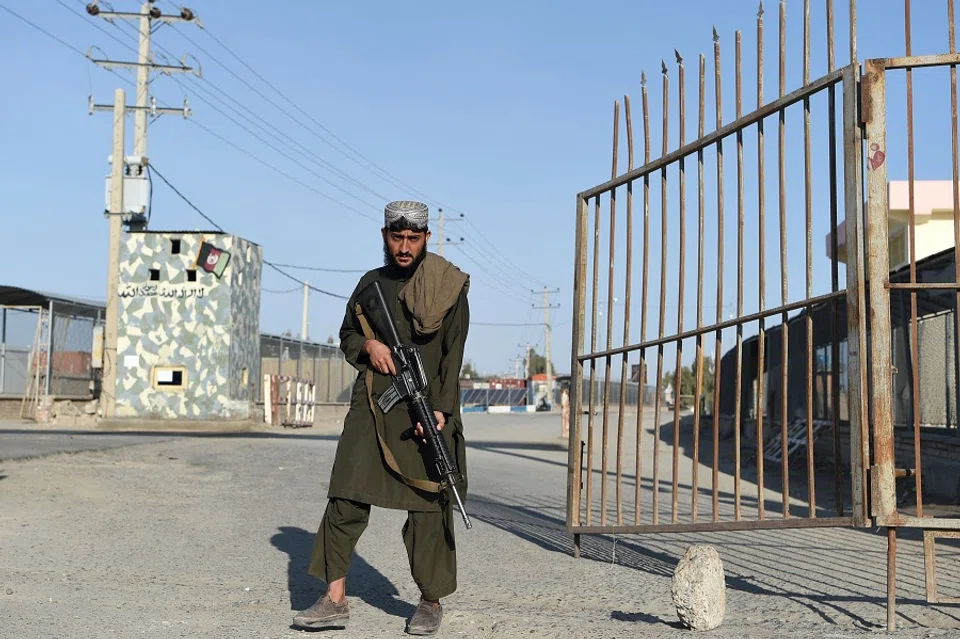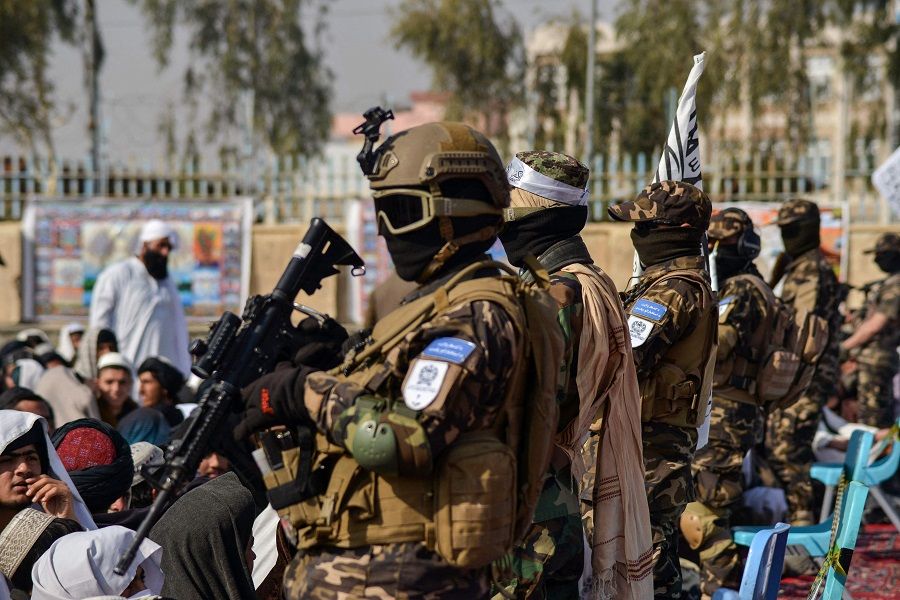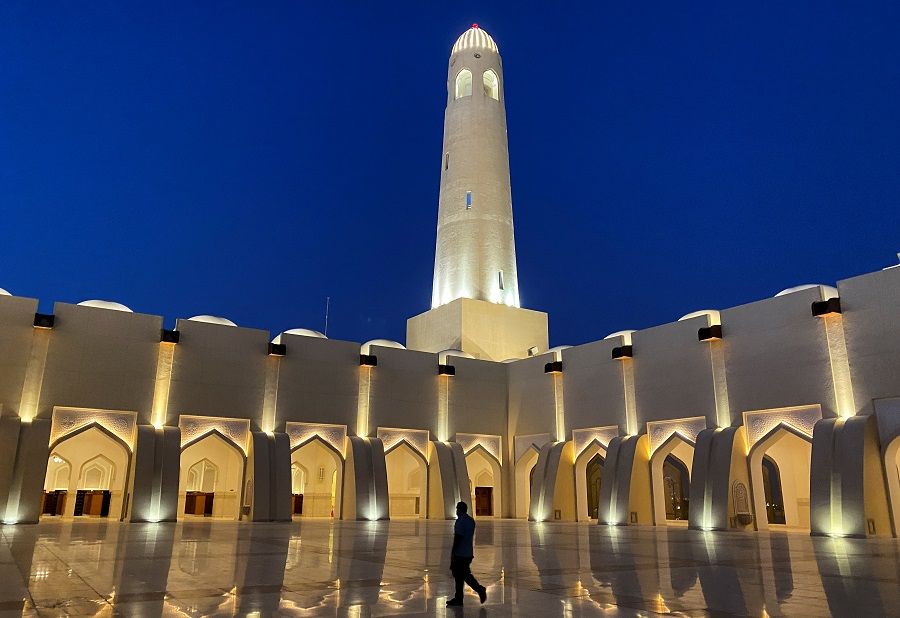Afghanistan's role in changing the power balance in Eurasia

Amid the ongoing Russian invasion of Ukraine, some US congressmen, former US officials and analysts have linked Russian adventurism in Eastern Europe and Chinese assertiveness in Asia to the US military withdrawal from Afghanistan. Arguably, US failure in places such as Afghanistan could translate into relative gains for its strategic adversaries. However, this has not been the case for Russia and China. In fact, Afghanistan's immediate neighbours - China, Russia, Iran, Pakistan and the Central Asian states - are facing security challenges arising from the US military retreat. The US exit has already made Afghanistan "someone else's problem". In fact, Afghanistan could be a stumbling block in American adversaries' quest to expand their influence in Eurasia in the long run.
Afghanistan's harsh terrain and religious conflicts
The US is experiencing the so-called "Afghanistan syndrome", or sentiment that the war in Afghanistan was not justified. Former global powers such as the British empire and the Soviet Union all fell in Afghanistan before the US. The US military withdrawal from Afghanistan simply shows that "America isn't exceptional anymore". On the contrary, Afghanistan has shown that it is an exceptional country in the way that it has prevented great power expansion towards the centre of Eurasia.
The Afghan exception in defeating modern world powers is not accidental. Afghanistan is first blessed - and conversely cursed - by its geography and topography, sitting on the Hindu Kush mountain range and being surrounded by rivers and moats. The tough terrains and battle-hardened peoples with a strong faith in Islam have jointly contributed to nullifying the effectiveness of modern weaponry, and increasing the human, logistical and moral costs of battle in Afghanistan. Despite the lack of advanced weapons and necessary supplies, the Afghans have used the country's geographic features to its advantage to defeat British artillery, Soviet tanks and American jets whose firepower would otherwise have been optimised in oceans, plains and deserts.
Arab fighters in Afghanistan, represented by bin Laden and Al Qaeda, have picked up the Palestinian cause in their jihadism.

Foreign fighters have also exploited Afghanistan's unique geography. When the US Central Intelligence Agency pressured the Sudanese authorities not to let Osama bin Laden go to Somalia, bin Laden, who owned construction companies and had conducted guerrilla activities in Afghanistan, quickly chose to return to the Hindu Kush mountains. There, he achieved "catastrophic success" by first attacking the US homeland and then luring US soldiers into Afghanistan for a 20-year long war that the Americans ultimately could not win.
Moreover, Arab fighters in Afghanistan, represented by bin Laden and Al Qaeda, have picked up the Palestinian cause in their jihadism. They have brought Middle East politics and conflicts - the Israeli-Arab conflict and Suni-Shia sectarianism - into Afghanistan and helped to shape Taliban behaviours and policies.
The Taliban's intolerance of the Shiite Hazara minority, use of suicide bombers and destruction of non-Muslim cultural sites and symbols such as the Bamiyan Buddhist statues have mirrored the practices of Middle Eastern radical groups. These similar political strategies and military tactics have understandably led to the mistaken conflation of Arab Wahhabism and Afghan Talibanism, when Arab influences represented by Wahhabism began to penetrate Afghanistan and Pakistan during the anti-Soviet wars in the 1980s and anti-US wars after 9/11.
But it is wrong to simply equate Afghan Talibanism with Arab Wahhabism.
But it is wrong to simply equate Afghan Talibanism with Arab Wahhabism. Despite some doubts on the separation between the Taliban and Arab fighters at the organisational and personal level, the US-Taliban signing of the Doha agreement has undoubtedly impacted religious dynamics between Arab Wahhabism and Afghan Talibanism. As a Taliban leader stated, "We don't want Wahhabism in Afghanistan." The rhetoric is an indication that the Taliban has begun to crack down on Afghan Wahhabis.

Academic discourse has also begun to dissociate Wahhabism from Talibanism by highlighting that the latter ideology originated from a town in British India, not in the Arab world. A small town located about hundred miles from Delhi, Deoband was "rediscovered" as the host of a renewed religious and educational centre known as Darul Uloom Deoband. Unlike Wahhabi activists in the Middle East, Deobandism (so named after the town) that is followed by the Taliban is led by traditional clerics and their students. In contrast to Arab Wahhabism that is focused on intra-religious, intra-ethnic, and intra-national conflicts, Deobandi movements have projected an international character against foreign domination or occupation, which have been persistent and consistent in Afghan-British war, Pakistan-India partition, anti-Soviet invasion and the US-Taliban war.
Afghanistan's defeat of nuclear powers the Soviet Union and the US, as well as their respective allies, suggests that the Afghan exception could be an alternative pathway to informally constrain rival Eurasian powers.
From counterterrorism to countering rival powers
Western inaction in response to Russia's continued military invasion of non-NATO countries such as Ukraine reveals the limits of nuclear deterrence and the military treaty alliance in constraining Russia. Nor would the US-led nuclear deterrence and security architecture in the Indo-Pacific be able to prevent Chinese military actions in the Taiwan Strait. The Biden administration has sought to "mend fences" and manage "intense competition" to prevent a potential war with China. Afghanistan's defeat of nuclear powers the Soviet Union and the US, as well as their respective allies, suggests that the Afghan exception could be an alternative pathway to informally constrain rival Eurasian powers.
Afghanistan's reputation as being the "graveyard of empires" and its impressive record of beating nuclear powers and military treaty alliances suggest an unconventional role for the country in the Eurasian security and power balance. In the "Westless" centre of Eurasia, American and Western presence have been weakened, while Russian influence is increasing. As an offshore power, the US should strategically leverage and strengthen the Afghan exception standing at the crossroads of Central and South Asia.
Related: What China wants to see under a Taliban-led Afghanistan | Biden may need China's help in Afghanistan | Afghanistan in the calculations of India, Pakistan and China: Is there common ground among rivals and allies? | China and Russia compete for influence in Central Asia | Chinese academic: China will pay the price for underestimating the US | Will China be emboldened by Russia's invasion of Ukraine?
